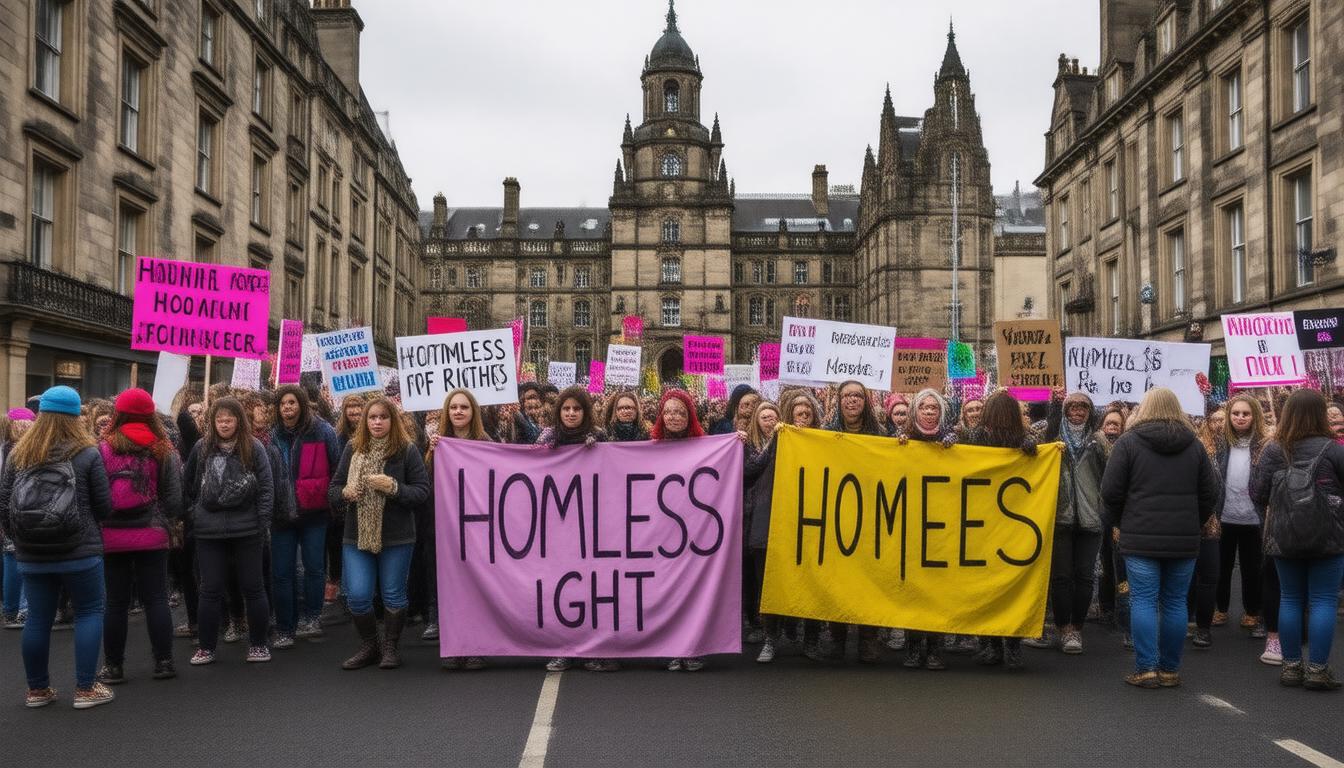Edinburgh is currently facing substantial scrutiny regarding its homelessness policies as Shelter Scotland has made a significant demand for the removal of the City of Edinburgh Council’s leadership. This request follows widespread condemnation of the council’s approaches to managing homelessness, particularly their recent reliance on unlicensed houses in multiple occupation (HMOs) for accommodating homeless families, which breaches legal standards concerning safety and occupancy.
Key Takeaways
- Shelter Scotland has urged the removal of the Edinburgh Council leadership over unsafe homelessness practices.
- The controversy revolves around the use of unlicensed HMOs for housing homeless families despite legal concerns.
- The council’s proposal to relax homelessness laws has raised alarms about the potential erosion of rights for vulnerable individuals.
Background on Homelessness Policies in Edinburgh
In response to ongoing crises surrounding homelessness, Shelter Scotland has recently issued a strong statement calling for the resignation of the leadership of the City of Edinburgh Council. This unprecedented demand stems from serious concerns regarding the council’s management of homelessness policies, notably their reliance on unlicensed houses in multiple occupation (HMOs). Shelter Scotland accuses the council of undermining the rights of homeless individuals, arguing that it is illegal to place families in unsafe, unlicensed HMOs (Shelter Scotland, 2024). This call for action marks the first time the charity has sought special measures against a local authority, indicating a deep-seated lack of confidence in the council’s ability to uphold legal standards for housing. The controversy intensified following a December 3rd meeting where the council’s housing committee proposed seeking permission from the Scottish government to relax homelessness laws through to March
2028. The modifications would not only allow for the use of unlicensed HMOs but also reinstate requirements for local connections prior to assessing homelessness status, both of which have raised alarms among advocacy groups (Smith, 2024). Despite acknowledging the rising figures of approximately 5,250 households currently in temporary accommodation in Edinburgh, the council insists that such reforms will ultimately provide better support to vulnerable populations (Council of Edinburgh, 2024). Shelter Scotland’s Director, Alison Watson, stated that the situation should be of significant concern to all citizens in Scotland, given that homelessness is a critical human rights issue (Shelter Scotland, 2024).
For comprehensive details on the policies proposed and the ongoing debate regarding homelessness in Edinburgh, residents and stakeholders are encouraged to stay informed and advocate for heightened protections for affected families.
Shelter Scotland’s Response and Call for Action
The escalating concerns surrounding homelessness management in Edinburgh have sparked a turbulent debate about local governance and the rights of vulnerable residents. Shelter Scotland’s candid call for the resignation of the City of Edinburgh Council leadership illustrates a profound level of distrust in their commitment to lawful and humane treatment of homeless individuals. This development comes amidst the alarming statistics revealing approximately 5,250 households currently residing in temporary accommodations, a situation compounded by the council’s proposal to ease regulations governing homelessness until
2028. Critics argue that allowing the operation of unlicensed HMOs under the guise of safety not only undermines the integrity of housing policies but also poses serious risks to the wellbeing of displaced families. Shelter Scotland’s Director has highlighted that for any civilised society, the question surrounding the moral implications of these practices should resonate deeply, compelling both local and national stakeholders to take a stand for the rights and dignity of all Scots (MacLeod, 2024). This unfolding scenario calls for heightened awareness and action to uphold foundational human rights protections within housing practices.





